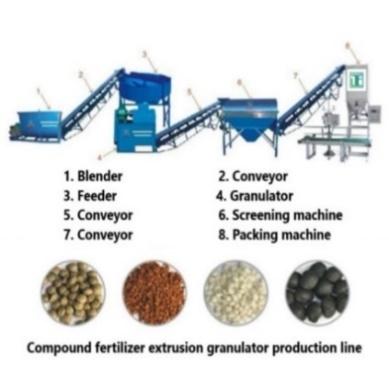Compost turning
Compost turning is a crucial process in the composting cycle that promotes aeration, microbial activity, and decomposition of organic waste materials. By periodically turning the compost pile, the oxygen supply is replenished, temperature is regulated, and organic matter is evenly mixed, resulting in faster and more efficient composting.
Compost turning serves several vital purposes in the composting process:
Aeration: Turning the compost pile introduces fresh oxygen, essential for the aerobic microorganisms responsible for decomposition. Adequate oxygen supply enhances their activity, speeding up the breakdown of organic matter into nutrient-rich compost.
Temperature Regulation: Compost turning helps manage the internal temperature of the pile. Turning exposes the outer, cooler layers to the warmer core, promoting even heating throughout the compost. Proper temperature control optimizes microbial activity and accelerates decomposition.
Moisture Distribution: Turning the compost pile facilitates the redistribution of moisture. It helps prevent waterlogged or overly dry areas, maintaining the ideal moisture content for microbial growth and nutrient release. Balanced moisture levels ensure optimal composting conditions.
Mixing and Homogenization: Compost turning allows for the blending of different composting materials, ensuring a homogeneous mixture. Mixing distributes nutrients and microorganisms evenly, leading to consistent compost quality and reducing the risk of localized anaerobic conditions.
Types of Compost Turners:
Manual Compost Turners: Manual turners, such as pitchforks or compost aerators, are suitable for small-scale composting or home gardening. They require manual effort to turn the compost pile, providing a cost-effective option for smaller operations.
Tow-Behind Turners: Tow-behind compost turners are larger machines that can be attached to a tractor or similar vehicle. They offer increased capacity and efficiency, making them suitable for medium to large-scale composting operations.
Self-Propelled Turners: Self-propelled compost turners are standalone machines equipped with engines or motors. They have the advantage of being more maneuverable and independent of external power sources, offering flexibility and efficiency in larger composting operations.
Windrow Turners: Windrow turners are specifically designed for composting in long, linear windrow piles. These machines straddle the windrow and turn the compost by lifting and tumbling the materials, ensuring uniform aeration and mixing along the length of the windrow.
Applications of Compost Turners:
Municipal Composting: Compost turners are widely used in municipal composting facilities for processing organic waste from households, businesses, and institutions. They help manage large volumes of waste efficiently and produce high-quality compost for landscaping, agriculture, and soil remediation projects.
Commercial Composting: Compost turners are essential in commercial composting operations, such as composting centers or organic waste processing facilities. They enable the rapid decomposition of organic materials on a larger scale, maximizing productivity and ensuring optimal composting conditions.
Agricultural and Farming Operations: Compost turners find applications in agricultural and farming practices. They are used to compost crop residues, livestock manure, and other organic waste materials. The resulting compost enriches the soil, improves nutrient availability, and enhances overall soil health and fertility.
Landscaping and Soil Remediation: Compost turners are employed in landscaping projects and soil remediation efforts. They help process green waste, yard trimmings, and other organic materials, producing compost that enhances soil structure, promotes plant growth, and aids in land restoration.
Conclusion:
Compost turning is a critical process that enhances composting efficiency by promoting aeration, temperature regulation, moisture distribution, and mixing of composting materials. Various types of compost turners, including manual turners, tow-behind turners, self-propelled turners, and windrow turners, cater to different scales of composting operations. Compost turners are widely used in municipal composting, commercial composting, agriculture, landscaping, and soil remediation. By incorporating compost turning into the composting process, you can achieve faster decomposition, create high-quality compost, and contribute to sustainable waste management and soil improvement practices.






